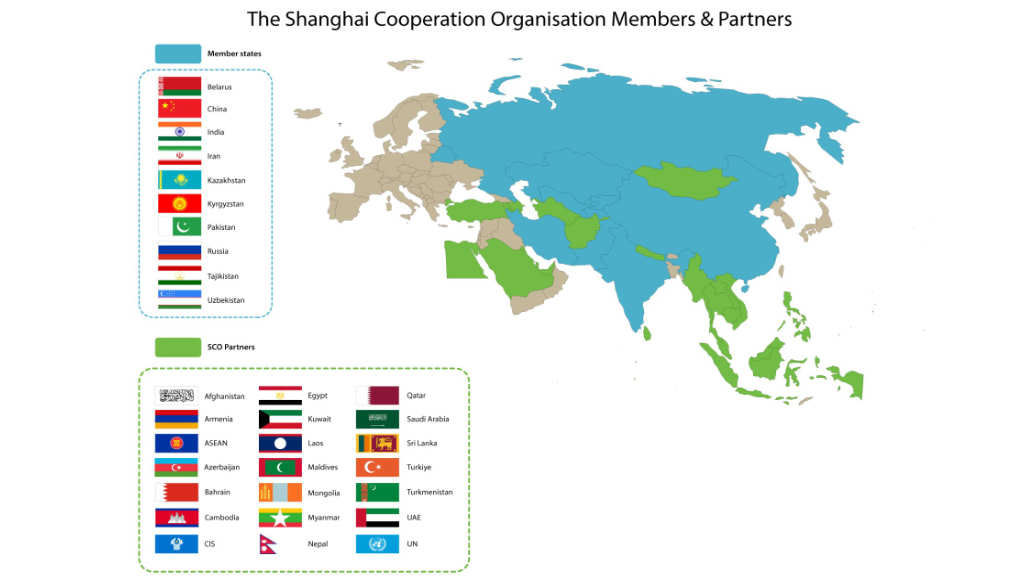The Shanghai Cooperation Organisation (SCO) members have voted to reorganise the status of the three non-full member categories of “Dialogue Partners,” “Observers,” and “Permanent Guests” into one single category: “SCO Partners.” The move simplifies categories and makes the group easier to administer.
This means that Afghanistan, Mongolia and Turkmenistan all become partners, as does the ASEAN trade bloc, which already included three dialogue partners (Cambodia, Laos, and Myanmar) and effectively adds Brunei, Indonesia, Malaysia, the Philippines, Singapore, Thailand and Vietnam into the SCO mix. ASEAN is represented at the SCO by its Secretary-General, Dr. Kao Kim Hourn, and has been attending SCO events since 2017.
Also elevated to partner status is the Commonwealth of Independent States (CIS), although its individual members were all previously involved either as full members or dialogue partners. Having a singular bloc voice, represented by its General Secretary, Sergey Lebedev, is also useful in having one voice representing the interests of all the SCO states. Interestingly, to reciprocate, the SCO itself became an observer to the CIS. Following the 2025 Tianjin summit, the Chairmanship of the SCO has passed to Sadyr Japarov, the President of Kyrgyzstan. Each full SCO member state holds the chairmanship for 12 months.
In addition to this, the United Nations, previously recognised as a permanent guest, is also elevated to the status of partner. The UN is represented by its Secretary-General, Antonio Guterres, thus retaining a link between the SCO and all other nations of the world and, in particular, the United States.
With the SCO bloc clamouring for reform at the UN, Guterres’ return to New York to discuss developments at the SCO Tianjin summit is bound to result in knock-on effects as the status of the United Nations itself during a time when its global credibility is being called into question. As the Kazakh president, Kassym-Jomart Tokayev, himself previously a director-general of the United Nations in Geneva, stated at the SCO summit, “In the current difficult geopolitical realities, we must support the UN as a universal and independent organisation. At the same time, there is a need to reform the United Nations, primarily its key body, the Security Council. We are fully aware of the complexity of such a reform, but there is no other way. If the current generation of leaders refuses to fulfil this task, it can definitively and irrevocably undermine the confidence of states in the UN.”
Note: Articles like this take many hours to prepare. Our analysis comes with decades of regional experience and professional expertise. When using our content, kindly refer to Russia’s Pivot To Asia as the source.
Enquiries? Email us at info@russiaspivottoasia.com
Further Reading
Introducing The Shanghai Cooperation Organisation Plus – A United Nations Game Changer

 Русский
Русский













